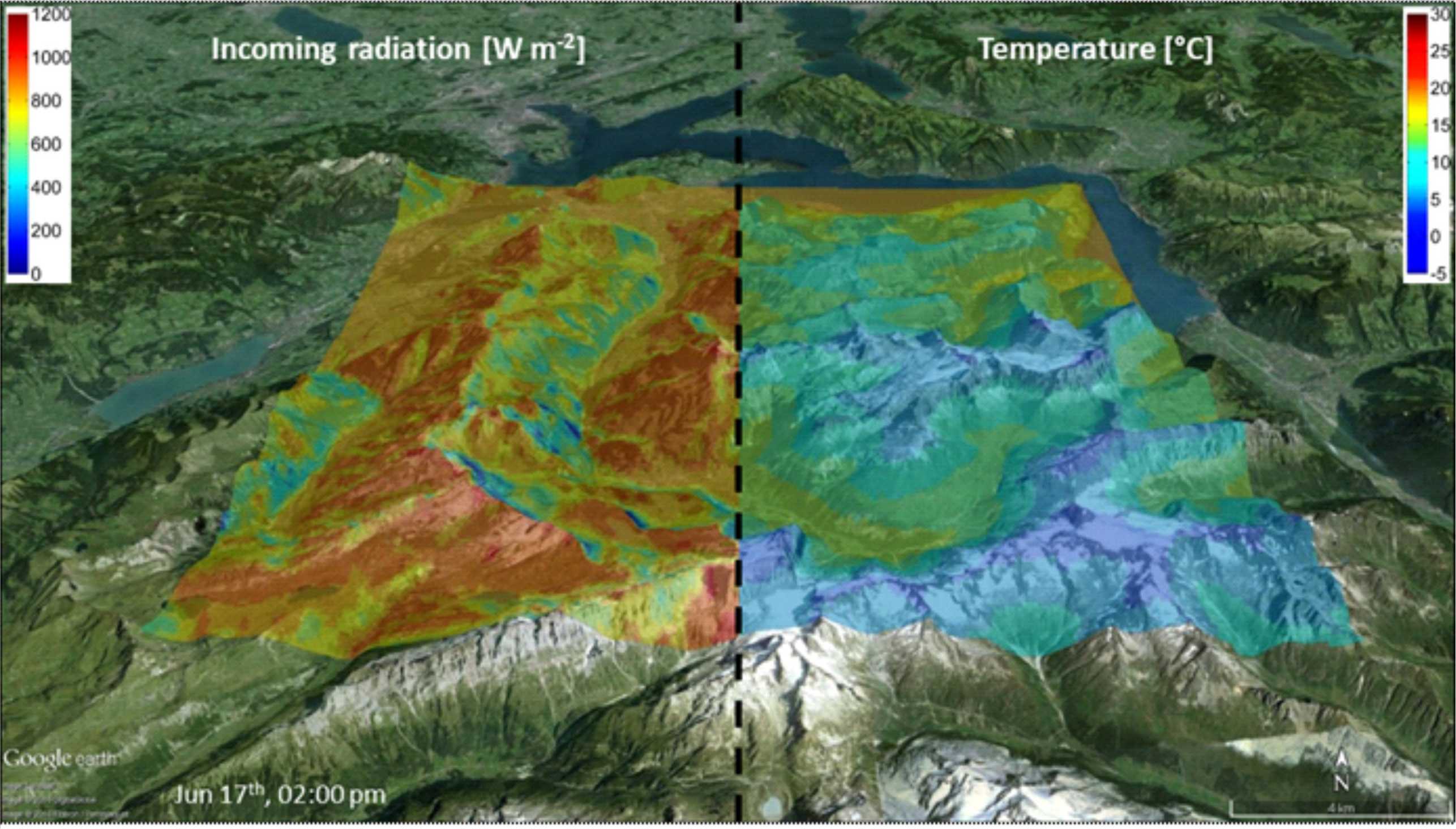Model: AWE-GEN-2D
An advanced stochastic weather generator for simulating 2-D high-resolution climate variables
AWE-GEN-2d (Advanced WEather GENerator for a 2-dimensional grid) is a stochastic weather generator that simulates gridded climate variables at high spatial and temporal resolution for present and future climates. Applications of the model include modelling of environmental systems, where high spatial and temporal resolution of meteorological forcing is crucial for the correct simulation of hydrological, ecological, agricultural and geomorphological processes.
AWE-GEN-2d combines physical and stochastic approaches to simulate key climate variables (e.g. precipitation, cloud cover, near-surface air temperature, solar radiation, vapor pressure, atmospheric pressure and near-surface wind). The use of a combined stochastic-physically based methods makes possible accounting for the dependence between meteorological variables and simulating them at sub-daily temporal scales. The model is parsimonious in terms of computational demand and therefore is particularly suitable for studies where exploring internal climatic variability at multiple spatial and temporal scales is fundamental. The model is suitable for studying the impacts of stochastic climate variability, spatial heterogeneity and temporal and spatial resolutions of climate forcing, as well as for climate downscaling. Its use as stochastic downscaling technique allows exploring the role of natural variability in future climate scenarios. This makes possible an explicit quantification of the uncertainty associated with the natural variability of climate, which cannot be explored neither by direct use of climate model scenarios nor by other common downscaling techniques.

TECHNICAL REFERENCE
external page AWE-GEN-2d Technical Reference
Code Availability
The MATLAB source code of AWE-GEN-2d and the data used for the Engelberg case study are available upon request for non-commercial applications. Any element of AWE-GEN-2d is free to use, modify, copy or distribute provided it is for academic use and source code developers are properly acknowledged and cited.